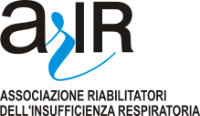ArIR is part of the
Global Alliance against Respiratory Disease (GARD)
The Global Alliance against Respiratory Disease (GARD) is a voluntary, national and international alliance, including organizations, institutions and agencies who works for the common goal of improving global respiratory health.
The Alliance is part of the activities of the WHO for prevention and control of chronic diseases, based on planned activities over estimating the needs of the population of professional interventions, defining and adopting right practice policies and identification of the phases of actuation and implementation of the policies themselves. The base of GARD interventions are the estimated impact of the pathologies onto population, the identification and surveillance of risk factors, the monitoring of the progresses of the disease impact, costs, life quality and access to care.
In order to effectively work against the problems caused by chronic respiratory diseases, GARD works to make chronic respiratory diseases as a public health-care priority in all the involved countries and to ensure that governments, media, citizens, patients, health professionals and all major stakeholders are aware of the extent of this problem.
In all countries, a national planning policy is essential to assign the right priorities and ensure that resources are allocated in a efficient way. For the field of chronic respiratory diseases this involves: the development of data standards to obtain registrations on diseases and risk factors; the promotion of policies aimed to promoting good health and the implementation of inter-sectoral action plans based on evidence for prevention and control; the adoption of sustainable strategies and performance indicators for patient management, the coordinated involvement of all stakeholders and civil society, ensuring the absence of potential conflicts of interest.
In this context, the added value of GARD work is to provide a network of collaboration through which the parts can join extent forces, to achieve results that could not be achieved on their own and improve the coordination already existing between governmental and non-governmental programs, in order to avoid a duplication of efforts and a waste of resources.
The approach of GARD is therefore to promote integrated proposals that, on one side, will capitalize, with synergistic strategies, the prevention and control of chronic respiratory diseases, taking into particular consideration the needs of vulnerable populations and the development of specific interventions for management the high-risk segments of population for these conditions, and, secondly, that can favor specific initiatives for each country, cutted according to specific local needs.
The vision of the alliance is “a world where everyone is free to breathe” with the ultimate goal of reducing the incidence of chronic respiratory diseases. The aim is to achieve a global approach to chronic respiratory diseases through:
- the development of a standardized path to obtain datas on risk factors, disease’s incidence and on its trends, quality and reliability of treatments, related expenditures and any other element that allows the closer surveillance of chronic respiratory diseases and of respiratory allergies
- carrying out a plenty of advocacy activities, in order to raise awareness of these diseases and create alliances and partnerships to bring out chronic respiratory diseases as a priority in public health, including strategies for individual and family education and support
- the implementation work for promoting prevention policies, in particular those aiming at reducing the impact of tobacco smoke, indoor and outdoor pollution, professional risks and other relevant risk factors
- the promotion of shared best practices (aimed at improving the timeliness of the diagnosis and the effectiveness of the specialized taking in charge) in order to reduce the severity of the disease and correlated disability
- the development of a set of indicators for accurate monitoring and evaluation of the results.
Source: National Healthcare Ministry

